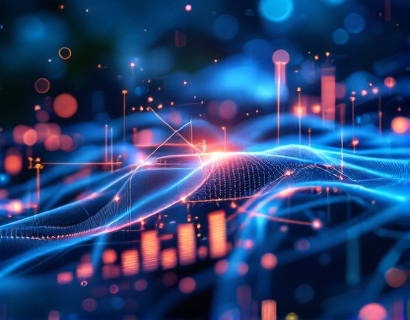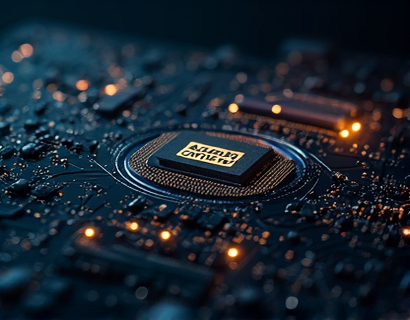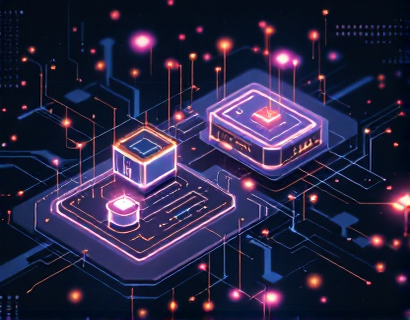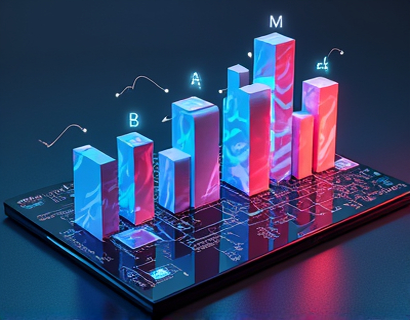Blockchain Oracle Management: Streamlining Data Integration and Smart Contract Execution for Decentralized Applications
In the rapidly evolving landscape of blockchain technology, the role of oracles emerges as a critical component for connecting decentralized applications (DApps) with external data sources. Oracles serve as bridges, providing real-time data and enabling smart contracts to interact with the off-chain world. However, managing these oracles efficiently remains a challenge for developers and businesses aiming to harness the full potential of blockchain. This article delves into transformative software solutions that revolutionize oracle management, focusing on streamlining data integration and enhancing smart contract execution. By optimizing these processes, the platform ensures secure and reliable interactions within DApps, unlocking the full potential of blockchain technology through advanced management and seamless service access.
Understanding Oracle Management in Blockchain
Oracle management in blockchain involves the process of integrating external data into smart contracts. These external data sources can include APIs, databases, IoT devices, and more. The primary function of an oracle is to fetch data from these sources and relay it back to the blockchain, allowing smart contracts to make informed decisions based on real-world conditions. However, this process is fraught with challenges such as data latency, security risks, and the need for high availability. Effective oracle management addresses these issues by providing robust mechanisms for data validation, secure communication, and efficient data handling.
Challenges in Traditional Oracle Management
Traditional oracle solutions often struggle with several key issues. Data latency is a significant concern, as delays in data retrieval can render smart contracts ineffective in time-sensitive applications. For instance, in decentralized finance (DeFi) platforms, delayed data can lead to missed opportunities or financial losses. Security is another critical aspect, as oracles act as single points of failure. If compromised, they can introduce vulnerabilities that threaten the entire DApp ecosystem. Additionally, the lack of standardization in oracle protocols makes integration complex and costly for developers. These challenges necessitate innovative solutions that can address data integrity, security, and efficiency.
Transformative Software Solutions for Oracle Management
To overcome the limitations of traditional oracle management, advanced software solutions have emerged. These platforms leverage cutting-edge technologies such as machine learning, distributed systems, and cryptographic protocols to create a more reliable and efficient oracle ecosystem. One such solution is a decentralized oracle network that aggregates data from multiple sources, ensuring redundancy and reducing the risk of data manipulation. By distributing the oracle function across a network of nodes, the platform enhances data accuracy and availability.
Another key feature of these solutions is real-time data processing. Utilizing stream processing techniques, the platform can handle high volumes of data with minimal latency. This ensures that smart contracts have access to the most up-to-date information, enabling them to respond promptly to changing conditions. For example, in supply chain management, real-time data on inventory levels can trigger automated smart contracts to initiate purchases or alerts, streamlining operations and reducing manual intervention.
Enhancing Data Integration
Effective data integration is crucial for the seamless operation of DApps. The transformative software solutions focus on creating a unified data layer that abstracts the complexities of multiple data sources. This abstraction layer allows developers to interact with various data providers using a standardized API, simplifying the integration process. By supporting multiple data formats and protocols, the platform ensures compatibility with a wide range of external systems.
Furthermore, these solutions incorporate data validation mechanisms to ensure the integrity of the information fed into smart contracts. Techniques such as cross-verification and anomaly detection help identify and filter out erroneous data, reducing the risk of smart contract failures. This validation process is essential for maintaining trust in the DApp ecosystem, as users rely on the accuracy and reliability of the data presented to them.
Securing Smart Contract Execution
Security is paramount in blockchain applications, and oracle management plays a vital role in this regard. The software solutions employ advanced cryptographic techniques to secure data transmission between oracles and smart contracts. End-to-end encryption ensures that data remains confidential and tamper-proof during transit. Additionally, the use of zero-knowledge proofs allows for verifiable computations without revealing sensitive information, enhancing privacy and security.
To further mitigate risks, these platforms implement robust access control mechanisms. Smart contracts can be configured to interact only with trusted oracles, and permissions can be granularly managed to prevent unauthorized access. This controlled environment minimizes the attack surface and ensures that only validated data influences smart contract behavior. Regular audits and updates to the security protocols keep the system resilient against emerging threats.
Optimizing Smart Contract Performance
Smart contracts benefit significantly from optimized oracle management. By reducing data latency and ensuring high availability, the platform enables smart contracts to execute more efficiently. This optimization is particularly important for applications that require frequent data updates, such as decentralized gaming or real-time auctions. With faster data retrieval, these applications can offer a more responsive and engaging user experience.
Moreover, the decentralized nature of the oracle network helps distribute the computational load, preventing any single node from becoming a bottleneck. This distributed approach not only enhances performance but also improves the overall reliability of the system. In scenarios where a node fails, the network can dynamically reroute data requests to other available nodes, ensuring continuous operation.
Use Cases and Real-World Applications
The benefits of advanced oracle management extend across various industries and applications. In the financial sector, DeFi platforms can leverage real-time market data to execute trades and manage risk more effectively. For instance, a decentralized lending protocol can automatically adjust interest rates based on current market conditions, ensuring fair and competitive terms for users.
In the Internet of Things (IoT) domain, oracles can aggregate data from numerous connected devices, enabling smart contracts to trigger actions based on sensor inputs. For example, a smart insurance policy can automatically process claims when specific conditions, such as temperature or motion, are met. This automation reduces fraud and streamlines the claims process.
Supply chain management is another area where oracle management shines. By integrating data from RFID tags, GPS trackers, and other IoT devices, smart contracts can monitor the status of goods in transit, ensuring timely delivery and quality control. This transparency builds trust among all parties involved and enhances operational efficiency.
Future Trends and Innovations
As blockchain technology continues to mature, the field of oracle management is expected to evolve further. One promising trend is the integration of artificial intelligence (AI) to enhance data processing and decision-making. AI algorithms can analyze large datasets to identify patterns and predict future trends, providing smart contracts with predictive insights. This capability can revolutionize industries such as finance, logistics, and healthcare by enabling more proactive and data-driven decisions.
Another area of innovation is the development of interoperable oracle standards. As the blockchain ecosystem grows, the need for seamless communication between different blockchain networks becomes increasingly important. Standardized oracle protocols will facilitate cross-chain data integration, allowing DApps to leverage data from multiple blockchains without the need for complex adaptations.
Additionally, the rise of layer 2 solutions and sidechains presents new opportunities for oracle management. These technologies can offload some of the data processing and storage tasks from the main blockchain, reducing costs and improving scalability. Oracles can then focus on fetching and validating data from these secondary layers, further optimizing the overall system performance.
Conclusion
Advanced oracle management solutions are pivotal in unlocking the full potential of blockchain technology for decentralized applications. By addressing the challenges of data latency, security, and integration, these platforms provide a robust foundation for reliable and efficient smart contract execution. As the ecosystem continues to evolve, the integration of AI, interoperability, and layer 2 solutions will drive further innovations, making blockchain more accessible and powerful for developers and businesses alike. Embracing these transformative solutions is essential for anyone looking to harness the true capabilities of decentralized technologies.










































